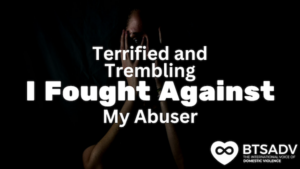Animals can play a significant role in helping domestic violence survivors in numerous ways. Here are some ways animals can provide support and comfort:
Emotional Support: Animals, particularly pets like dogs and cats, offer unconditional love and companionship. Their presence can help survivors feel less lonely and provide emotional support during challenging times.
Reducing Stress and Anxiety: Interacting with animals of all kinds has proven to reduce stress, anxiety, and depression. Spending time with animals can help survivors feel calmer and more relaxed, providing a break from the intense emotions often associated with trauma.
Mental health clinics, Hospitals, and nursing homes across the country will bring in animals to help with therapy within and outpatients.
Physical Comfort: Animals offer physical comfort through cuddling, petting, or being near the survivor. This physical contact can be soothing and reassuring, helping survivors feel safe and secure. Dogs are known to be there for their owners and know when they need a cuddle or just a little support.
Sense of Purpose and Routine: Taking care of animals, such as feeding, grooming, and walking dogs, can provide survivors with a sense of purpose and routine. This can be especially beneficial for survivors who may struggle with feelings of worthlessness or lack of control.
Building Trust and Empathy: For survivors who have experienced betrayal or abuse by humans, forming relationships with animals can help rebuild trust and empathy. Animals offer non-judgmental companionship, allowing survivors to develop healthier people skills. And can help survivors start to form relationships and trust with humans again.
Encouraging Physical Activity: Animals, particularly dogs, encourage physical activity through activities like walking, playing, and exercising. Regular physical activity has numerous benefits for mental and emotional well-being, including reducing symptoms of depression and anxiety. This can help survivors form healthy habits.
Providing a Safe Environment: Animals can create a sense of safety and security for survivors, especially when living in a new or unfamiliar environment. The presence of a pet can deter potential abusers and provide survivors with a source of protection. And more stores are allowing pets to come in with their owners and they do not always have to be service pets. Taking your pet shopping with you can help survivors feel safer in an unfamiliar environment.
Facilitating Communication: Animals can serve as a bridge for communication between survivors and others, including therapists, support groups, or law enforcement. For survivors who may find it difficult to express their emotions verbally, interacting with animals can offer an alternative form of expression.
Empowerment and Healing: Taking care of an animal can be empowering for survivors, as it allows them to nurture and protect another living being. This sense of responsibility can boost self-esteem and facilitate the healing process.
Access to Resources: Animal welfare organizations and shelters often provide resources and support for survivors fleeing domestic violence situations. These organizations may offer temporary pet housing, assistance with veterinary care, or referrals to pet-friendly shelters.
Overall, animals can play a crucial role in supporting domestic violence survivors on their journey toward healing and recovery. Whether through emotional companionship, physical comfort, or empowerment, the presence of animals can offer survivors solace and strength during challenging times.










